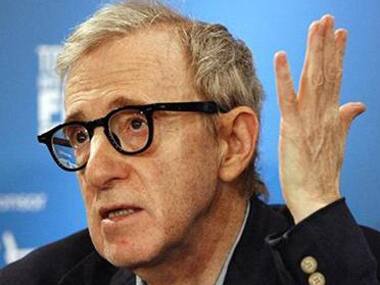While Woody Allen may have found many supporters in Bollywood who backed his decision not to release his latest film Blue Jasmine in India, he has also invited the ire of cancer specialists by refusing the ‘customisations’ of his film that are necessary as per Indian government regulations, basically involving a superimposed warning of “Cigarette smoking is injurious to health” on the screen every time a character lights up in the movie. Pankaj Chaturvedi, a cancer surgeon at Tata Memorial Hospital, is one such oncologist who has has been up in arms after Allen objected to the tobacco advertisement. He has in fact written an open letter to Allen where he accuses the filmmaker of defending smoking as expression of creativity and artistic freedom. In the letter, Chaturvedi asks, “Are your directorial skills so low that you need smoking scenes to make your movies more popular and profitable?” [caption id=“attachment_1170431” align=“alignleft” width=“380”]
 Reuters[/caption] In a terse letter, Chaturvedi points out to Allen that in the United States, tobacco use is responsible for more deaths than World War II, HIV/AIDS, cocaine, heroin, alcohol, accidents, homicide and suicide – “combined!” Chaturvedi questions Allen, “Don’t you think it’s our responsibility to protect our forthcoming generations from the ill-effects of tobacco use?” In his letter, Chaturvedi also raises the issue of how in recent times positive characters in films are smoking onscreen and says that there are instances of big tobacco companies paying film producers to show their characters smoking onscreen. Chaturvedi leaves no opportunity to lash out at Allen in his letter and asks him if he is associated with big tobacco companies and inquires if he honestly believes smoking scenes in movies aren’t clever product placements. Read the complete open letter of Pankaj Chaturvedi to Woody Allen here:
Reuters[/caption] In a terse letter, Chaturvedi points out to Allen that in the United States, tobacco use is responsible for more deaths than World War II, HIV/AIDS, cocaine, heroin, alcohol, accidents, homicide and suicide – “combined!” Chaturvedi questions Allen, “Don’t you think it’s our responsibility to protect our forthcoming generations from the ill-effects of tobacco use?” In his letter, Chaturvedi also raises the issue of how in recent times positive characters in films are smoking onscreen and says that there are instances of big tobacco companies paying film producers to show their characters smoking onscreen. Chaturvedi leaves no opportunity to lash out at Allen in his letter and asks him if he is associated with big tobacco companies and inquires if he honestly believes smoking scenes in movies aren’t clever product placements. Read the complete open letter of Pankaj Chaturvedi to Woody Allen here:
Meanwhile, Delhi-based Hriday, associated with the Indian Public Health foundation, also wrote to Allen urging him to release his film in India, reports the Calcutta Telegraph. In its letter,the NGO has said it is a misconception that the anti-tobacco message on screen distracts viewers. “More than one hundred famous Hollywood films released in India over the past year have complied with the anti-tobacco law in full spirit and have also done well at the box office,” the NGO said, according to the report. Monika Arora, senior director of the health group, was quoted in the report as citing a study conducted by Hriday which revealed that youths exposed to tobacco use in films are twice as likely to be tobacco users than others.
)